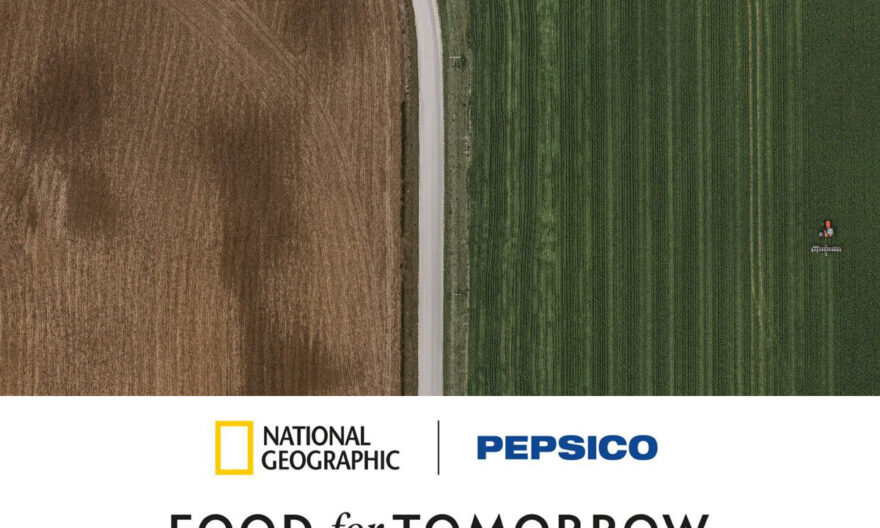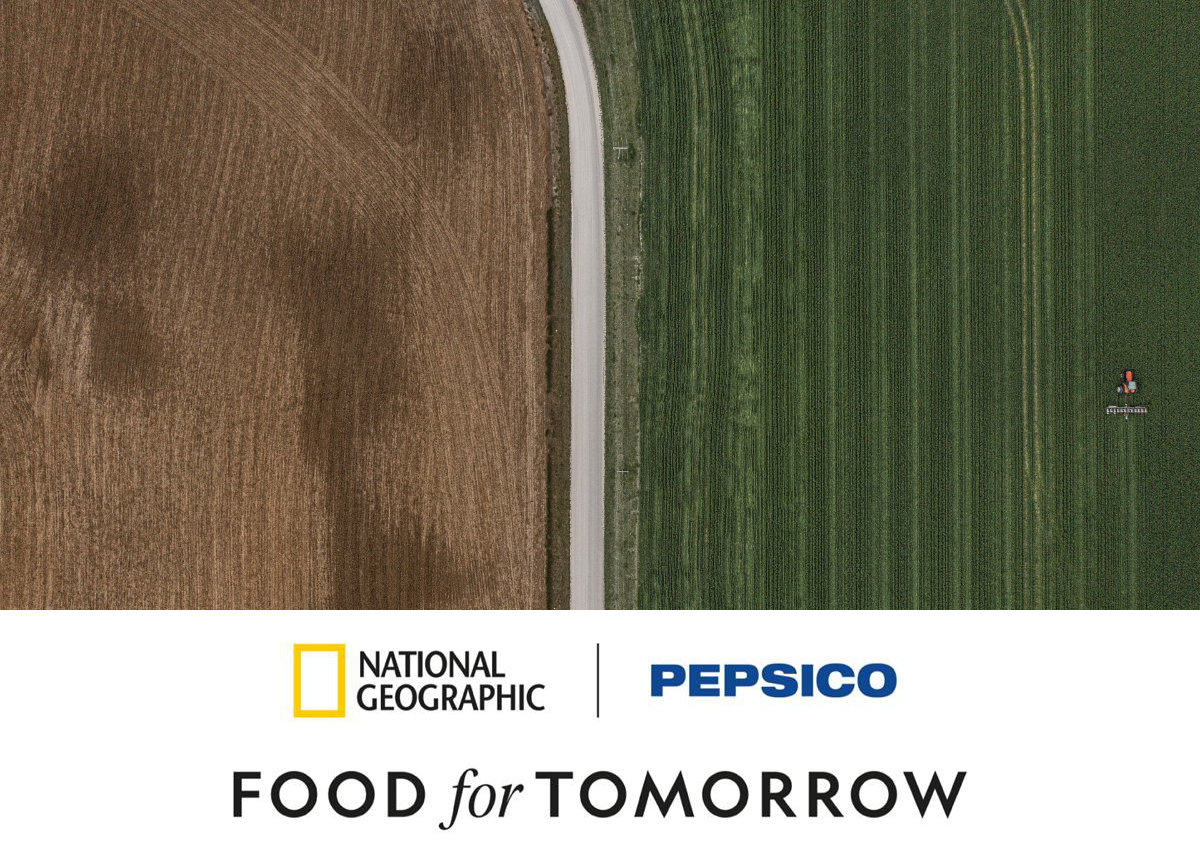
The National Geographic Society and PepsiCo have announced a joint initiative aimed at transforming the global food system through the power of science, storytelling, and education.
The initiative, called Food for Tomorrow, seeks to raise awareness about regenerative agriculture — a set of farming practices that restore soil health and work in harmony with nature. Through captivating imagery, scientific research, and real-life storytelling, the program will spotlight innovative agricultural practices and support sustainable food production.

With the global population expected to hit 10 billion by 2050, the pressure to feed the world while protecting the environment is growing. According to UNESCO, nearly 90% of the planet’s soil could be degraded by mid-century if current trends continue. Regenerative agriculture offers a promising solution by helping rebuild healthy ecosystems, supporting farmers, and ensuring long-term food security.
“Our future will be shaped by how we grow our food today,” said Jill Tiefenthaler, CEO of the National Geographic Society. “In collaboration with PepsiCo, we’re proud to support the scientists, farmers, and storytellers working to create a better future for both people and the planet.”
As part of the campaign, five National Geographic Explorers will be selected to tell the stories of communities around the world already putting regenerative agriculture into practice. These stories will showcase the real-world benefits of sustainable farming and inspire global audiences to think differently about the food they consume.
In addition to storytelling, Food for Tomorrow will also support applied science. The initiative includes a scientific grant program called “Building Resilience in Agriculture,” which will fund up to five projects focused on innovative, nature-positive farming solutions. Applications are open until September 30, 2025.
PepsiCo, one of the world’s largest food and beverage companies, has committed to scaling regenerative practices across 10 million acres by 2030. The company says this transformation is critical, as climate change continues to threaten the global food supply.
“Farmers are feeling the effects of climate change every day, and the stakes have never been higher,” said Ramon Laguarta, PepsiCo Chairman and CEO. “Through Food for Tomorrow, we’re combining our agricultural expertise with National Geographic’s global reach to support a more resilient food system.”
To help bring the initiative to life, PepsiCo and National Geographic CreativeWorks have produced a series of short films featuring farmers who are embracing regenerative agriculture. These videos highlight stories of innovation, adaptation, and hope.
Looking ahead, the program also plans to launch a data visualization tool in 2026. The interactive platform will map how regenerative practices improve food and farming resilience across the globe, offering valuable insights for scientists, farmers, and the general public.
Food for Tomorrow aims to spark a global movement—uniting science, innovation, and storytelling to secure a healthier, more sustainable future.
